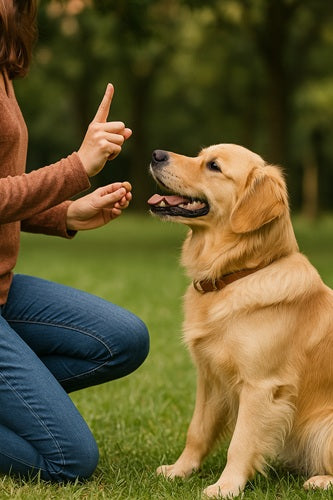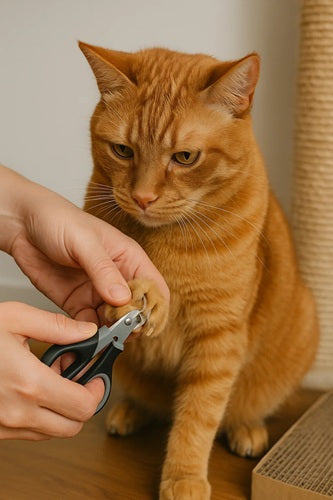Making Life Easier For Your Disabled Dog
Do you have a dog with special needs? The thought of caring for a disabled dog might sound challenging and overwhelming for some, and yes, there may be days that are challenging, but with a good amount of research done and a network of support, you can fall into a routine of care and attention that suits the needs of your pet. One thing that will certainly help you is knowledge - understanding the specific disability and the care that is required will help you be as prepared as possible. Based on the disability, there are also some measures that can be taken to reduce pain and increase mobility. Let’s explore all these aspects in detail.
How to care for a disabled dog?
A disabled dog is a special little unique friend you have been blessed with. He needs just a little extra care and attention. Here are a few tips that can help you take appropriate care of your disabled dog.
-
Structure a routine: Every dog needs a routine, especially dogs with disabilities. A good routine provides structure, dependability and predictability. A simple task that is easy and manageable for an able-bodied dog, is much harder for a disabled dog. Providing him a fixed routine or rhythm helps him be more prepared for these daily tasks.
-
Home arrangements: For a dog who is physically impaired, it is important for him to be able to move freely without any obstacle or without causing any accident. It is ideal to ensure that furniture or other items around the house aren’t causing a hindrance to your pet’s movement around the house. Once your pet is comfortable moving around the house, it is advisable to minimize rearrangements of furniture so as to maintain a predictable environment that he can rely on.
-
Investing in appropriate gears: There are many resources/ gears that can be invested in which help make your pet more comfortable, mobile and safe. Depending on his condition, invest in appropriate gears such as dog wheelchairs, harnesses, non-skid socks that provide traction, ramps, orthopedic bed, hearing aid. These will provide support to your dog to move around safely and make his life easier as well as comfortable.
-
Engage in low-impact exercise: All dogs need exercise to stay healthy and fit. Although your disabled dog may not be able to exercise like a normal dog, implementing some low-impact and mild exercise sessions will help him greatly. If he is healthy enough to enjoy an outdoor walk, that is super beneficial for his mental and physical health. Adjust the activity level to suit his physical ability, don’t overstimulate or under exercise. Monitor and observe his ability and develop an exercise plan that suits his exact requirements. Incorporate some mentally stimulating games into his day as well. This will keep his mind fresh and engaged as well.
-
Nutritional care: Since a disabled dog might have reduced mobility and activity levels, their diet would need to be adjusted accordingly. Healthy, nutritious meals will ensure appropriate digestion, proper bowel movements and overall health. It is important that dogs who aren’t able to endure active workouts are provided very limited treats and emphasis is given on providing appropriate nutritious food to ensure limited weight gain.
-
Veterinary care: Disabled dogs may require frequent vet care to ensure there is no discomfort or pain. Your veterinarian would be your best source for accurate information, guidance, and support when you need to structure appropriate care plans for your special friend.
-
Self care: Caring for a pet with a disability is a big responsibility and it can take its toll on the caregiver - both mentally and physically. Whilst taking care of your pet, it is also important to take care of yourself. There are many pet support groups in which you could find people going through the same situation as you. Understanding that you are not alone, gives you the strength and courage to continue to provide unconditional care to your pet every single day. Reach out to friends or family for help when you do feel overwhelmed.
Taking care of a disabled pet requires a number of considerations, patience and ofcourse a great deal of love! Dogs that have developed disabilities (rather than being born with it) would take time to adjust to life with a disability. They would need more patience and possibly even some training to adjust to this new way of living. With quality care from you as a responsible pet parent, your dog can also enjoy a healthy, happy life.








